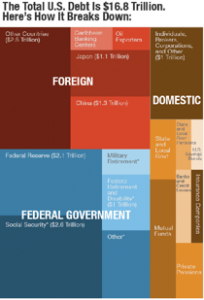 The sheer size of today’s corporations virtually ensures that companies will have to wrangle with lots of legal red tape. Most top executives spend as little time as possible dealing with law, choosing either to avoid it or grudgingly comply with the restrictions they face. In the former case, a company may try to move some operations into another country to dodge certain taxes, while in the latter executives simply do the bare minimum necessary to make it through the Continue reading
The sheer size of today’s corporations virtually ensures that companies will have to wrangle with lots of legal red tape. Most top executives spend as little time as possible dealing with law, choosing either to avoid it or grudgingly comply with the restrictions they face. In the former case, a company may try to move some operations into another country to dodge certain taxes, while in the latter executives simply do the bare minimum necessary to make it through the Continue reading








